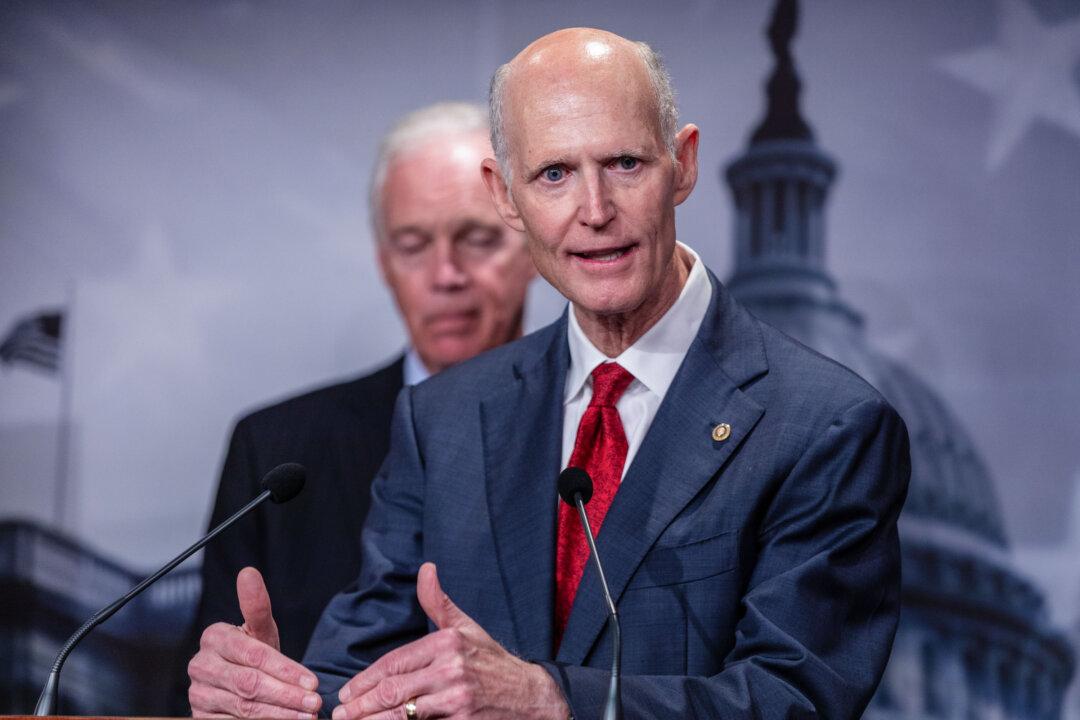A campaign by Sen. Rick Scott (R-Fla.) to be the next Senate majority leader is surging with a blizzard of endorsements from colleagues who normally keep silent about whom they will support for the position until the secret ballots are cast.
Scott, Sen. John Cornyn (R-Texas), and Sen. John Thune (R-S.D.) are competing to succeed Sen. Mitch McConnell (R-Ky.), the longest-serving Republican Senate leader of modern times, having filled the position since 2007 in Senates controlled by both parties.





